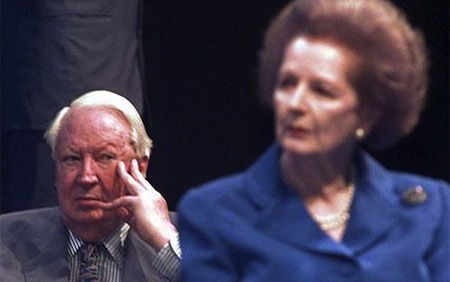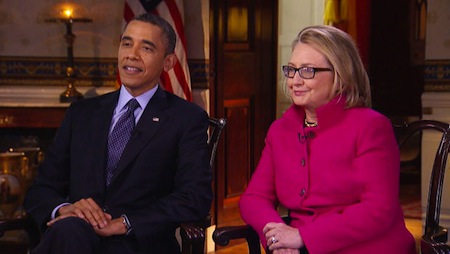My friend and colleague, Dr. Michael J. Geary, and I, are in The National Interest today with a even-further revised piece on the history of relations between the United Kingdom and the European Union (pictured above are former prime ministers Edward Heath and Margaret Thatcher).![]()
![]()
In particular, we continue to argue that British participation in the EU — including UK prime minister David Cameron’s latest speech demanding a renegotiation of the UK’s position in the EU and a straightforward in/out referendum by 2017 — must be viewed within the long context of the tumultuous 40-year history of UK-EU relations:
But even as the Eurozone accepts that deeper union is necessary to make the single currency workable, it’s unclear that in the reality of today’s “multi-speed Europe,” Cameron would need to renegotiate anything in order to retain the fiscal prerogative at home—just 22 days ago, the “fiscal compact” took effect through much of the rest of the EU, despite Cameron’s refusal to ratify it.
That’s why Europe should view Cameron’s speech not only in the narrow context of right-wing domestic politics or fiscal sovereignty, but within the wider scope of Britain’s troubled relationship with European integration. Ideally, Britain wants a European-wide free-trade area without the supranational institutional apparatus, something it proposed during the 1950s. Yet unless the euro implodes, that’s not the future of the EU.
Photo credit to Paul Grover.


